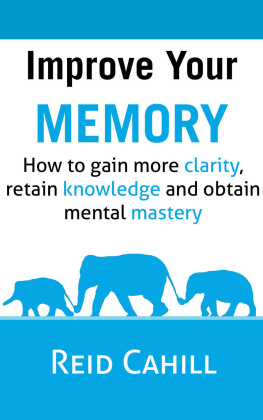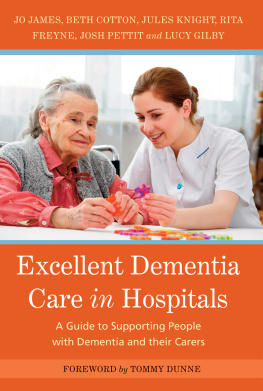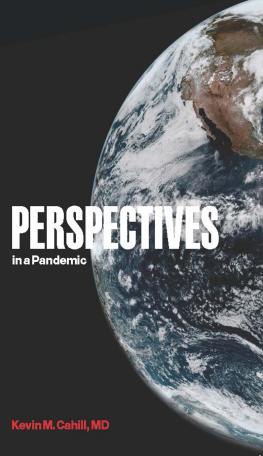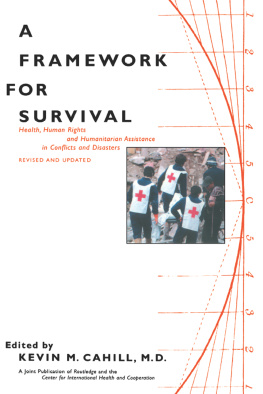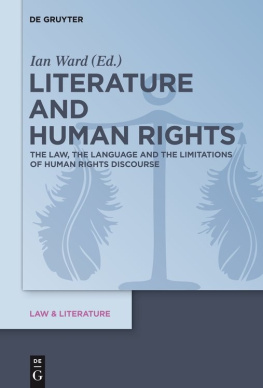First published in Great Britain in 2018 by
Policy Press University of Bristol 1-9 Old Park Hill Bristol BS2 8BB UK Tel +44 (0)117 954 5940 e-mail
North American office: Policy Press c/o The University of Chicago Press 1427 East 60th Street Chicago, IL 60637, USA t: +1 773 702 7700 f: +1 773-702-9756 e:
Policy Press 2018
British Library Cataloguing in Publication Data A catalogue record for this book is available from the British Library
Library of Congress Cataloging-in-Publication Data A catalog record for this book has been requested
ISBN 978-1-4473-3140-7 paperback
ISBN 978-1-4473-3137-7 hardcover
ISBN 978-1-4473-3141-4 ePub
ISBN 978-1-4473-3142-1 Mobi
ISBN 978-1-4473-3138-4 epdf
The right of Suzanne Cahill to be identified as author of this work has been asserted by her in accordance with the Copyright, Designs and Patents Act 1988.
All rights reserved: no part of this publication may be reproduced, stored in a retrieval system, or transmitted in any form or by any means, electronic, mechanical, photocopying, recording, or otherwise without the prior permission of Policy Press.
The statements and opinions contained within this publication are solely those of the author and not of the University of Bristol or Policy Press. The University of Bristol and Policy Press disclaim responsibility for any injury to persons or property resulting from any material published in this publication.
Policy Press works to counter discrimination on grounds of gender, race, disability, age and sexuality.
Cover design by Qube Design Associates, Bristol
Front cover image: Getty
Reader's Guide
This book has been optimised for PDA.
Tables may have been presented to accommodate this devices' limitations.
Image presentation is limited by this device's limitations.
Acknowledgements
This book could not have been written without the support of a number of colleagues, friends and relatives to whom I am very grateful. First my thanks are due to Professor Bernard Walsh, Dr Declan Byrne, Carol Murphy and Lorcan Birthistle from St James's Hospital, Dublin, for their belief and confidence in the feasibility of this book and for their supporting me to take time off work to write it. During that eight-month period, Matthew Gibb took over from me, as Director at the Dementia Services Information and Development Centre (DSIDC), and I owe Matthew a special debt of gratitude. I also wish to thank Professor Davis Coakley and Professor Brian Lawlor (founders of the DSIDC) for the continuous support shown to me throughout my lengthy and very fulfilling career there as Director.
Prior to setting out on this project, I knew little about human rights, and I found in a friend and colleague Dr Hasheem Mannan (University College Dublin) much inspiration. I would like to thank Hasheem for his gently ushering me into the complex area of the human rights literature and his early most valuable advice. A big thank you is also due to Dr Edurne Garca Iriarte for teaching me all I currently know about 'disabilities studies' and for allowing me to share my embryonic thoughts on 'dementia as a disability' with her Master's in Disability students at Trinity College Dublin. At Trinity College, I would also like to acknowledge the support, encouragement and advice given to me by Professor Robbie Gilligan, Professor Desmond O'Neill and Professor Virpi Timonen.
The voice and perspective of the individual living with dementia was central to this book, and in this context I particularly want to thank Helen Rochford Brennan, Chairperson of the Irish and European Working Group on Dementia, for her support and contribution. I would also like to acknowledge the support offered to me by Professor Peter Mittler.
Whilst researching and writing the book, Dr Emer Begley and Avril Easton, both former students of mine employed at The Alzheimer Society of Ireland, gave generously of their time, for which I am very grateful. Grinne McGettrick, former Policy Officer at The Alzheimer Society, was the person who first inspired me to apply the human rights lens to framing dementia, and I would like to thank Grinne for her insights and earlier helpful discussions. At Alzheimer Europe, I would especially like to acknowledge and thank Dr Ana Diaz-Ponce for her generosity and support: Ana has always been such a ray of sunshine in my life and continues to be hugely missed by me as I know by many others in the dementia field in Ireland. At Alzheimer Europe, my thanks are also due to Dr Dianne Gove.
Across the world, there are many other experts in the field of dementia studies who have supported me over recent months. In no particular order these include Professor Mary Marshall, Professor Sube Banerjee, Professor Linda Clare, Professor John Keady, Professor yvind Kirkevold, Professor Steve Iliffe, Professor Bob Woods, Professor Louise Robinson, Dr Torhild Holthe, Dr Fiona Kelly, Glenn Rees, Marc Wortmann, Marie Jo Guisset, Sue Benson and Marianne Schulz. Much of my critical thinking about dementia occurred during the period I was establishing the Living with Dementia postgraduate research programme at Trinity College, through a research grant awarded to me by The Atlantic Philanthropies and at Atlantic, I would especially like to thank Mary Sutton, Ken Logue, Tom Costello and Julie Browne for their confidence in me and support of my effort.
Several friends and close colleagues from Ireland provided helpful feedback on earlier draft chapters of this book. In this context I would like to thank Professor Eamon O'Shea, Dr Maria Pierce, Dr Tony Foley, Dr Emer Begley, Dr Sarah Donnelly, Dr Fona Kelly, Dr Jackie Eustace, Daphne Stephenson and Athina Georgantzi. More than anyone else I must acknowledge a great debt to Professor Margaret Shapiro, my former PhD supervisor and close friend, who has kept my thinking sharp and has read and provided valuable feedback to me on every chapter of the book. There are several other colleagues, friends and former students whose insights over the years have greatly enriched this book and whose works I have attempted to thread through some of the chapters and to whom I am very grateful. These include Dr Treena Parsons, Dr Andrew Bobersky, Professor Kate Irving and Dr Sabina Brennan.
My friends near and far in Ireland, Sweden and Australia likewise need to be acknowledged. In Jnkping (my second home), special thanks are due to Arja and Bernt Ringstrm, two wonderful friends and neighbours. Arja, it so happens, is a nurse practitioner who works in a specialist dementia care unit. She has opened up so many opportunities for me to learn all I currently know about the Swedish health and social care system for older people. My thanks are due also to my family in Ireland present and past who have given me so much, especially my sisters Jackie and Michele and their families, my cousin Derek O'Connor and my new family in Sweden, especially Rigmor, Olle and Carl. Susie Cox is a wonderful friend to whom I am so grateful for her proofreading the entire book. A special thanks to Policy Press, particularly Isabel Bainton and Rebecca Tomlinson for their endless patience with me throughout and to Ruth Wallace for her editorial wisdom and amazing skill in helping me structure the final version of this manuscript. Finally, the greatest acknowledgement in this work rests with my husband Thomas, whose love, support, encouragement, patience, technical help and confidence in me throughout the time spent researching and writing this book has been so utterly amazing Jag vet att jag inte kunde ha gjort detta utan ditt std!





